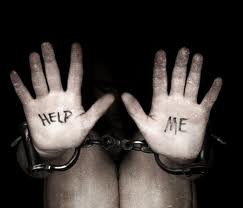 A number of Egyptian prosecutors have recommended establishing a specialized committee to investigate crimes of human trafficking, saying there are loops in the existing legislation.
A number of Egyptian prosecutors have recommended establishing a specialized committee to investigate crimes of human trafficking, saying there are loops in the existing legislation.
In a training workshop on dealing with cases of human trafficking, the prosecutors explained that these crimes are not accurately tackled under current laws, as they are novel to Egypt and imposed by new social and economic factors.
The workshop, organised by the National Council for Childhood and Motherhood, was held in collaboration with the Egyptian prosecution and International Migration Organization.
The Council has held nine training sessions during the past three months in different governorates.
Director of the Human Trafficking Unit in Egypt's Ministry of Population and Family, Azza al-Ashmawi, said that such workshops are a stepping stone in combating human trafficking and protecting children at risk of modern-day slavery.
"This counts as the first time that the members of public prosecution are integrated in the fight against human trafficking," Ashmawi said, adding that the prosecution now refers victims to shelters and takes measures for their protection.
The workshops addressed practical applications of real-life situations where children are at risk of being trafficked.
Egypt is a source, transit, and destination country for women and children trafficked for the purposes of forced labor and sexual exploitation. Some of Egypt's estimated one million street children are exploited in prostitution and forced begging, said a U.S. State Department report on Trafficking in Persons.
The Egyptian parliament passed legislation criminalizing all forms of human trafficking in 2009.



